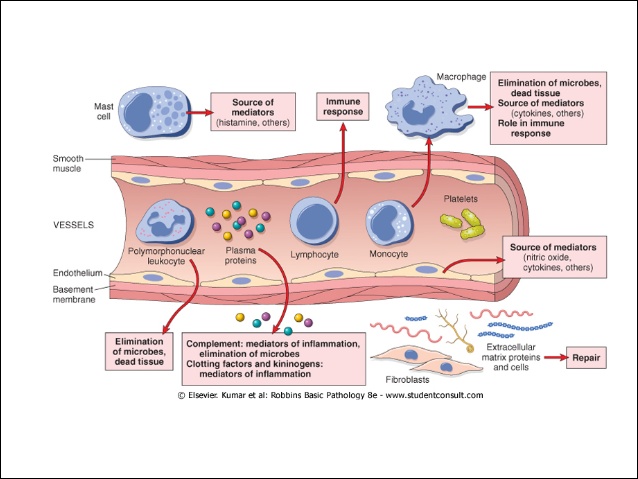Cinnamon is one of the world’s most beloved spices, but did you know it has useful benefits for fertility as well? It has been used for years to curb heavy menstrual bleeding (menorrhagia), including heavy bleeding due to endometriosis and uterine fibroids. Over the last 10 years it has been used to aid women with insulin  resistance associated with PCOS and those with type 2 diabetes.
resistance associated with PCOS and those with type 2 diabetes.
Cinnamon for PCOS
Resistance to insulin increases the body’s insulin levels. A pilot study showed cinnamon to greatly reduce insulin resistance in women with PCOS. The study showed that cinnamon reduced insulin by increasing phosphaidylinositol 3-kinase activity in cell function. Half of the women who took part in the pilot study took cinnamon extract for 8 weeks, while the half of the women took a placebo. After the 8 weeks period, both groups of women were tested using fasting and 2-hour oral glucose tolerance tests. The group who took the cinnamon had greatly reduced insulin resistance compared to the placebo group.
Another study showed cinnamon to improve glucose levels in type 2 diabetes patients. The double blind study used 79 patients who normally managing their diabetes with diet, or medication like Metformin, a medication often prescribed for PCOS patients as well. Patients were randomly assigned to take 1 capsule, 3 times a day of cinnamon (equal to 3g. or 1 tsp.), or a placebo for 4 months. At 40 days fasting glucose levels were taken; patients taking cinnamon had a significantly reduced level of 10.3% compared to 3.4% in the placebo group. These findings are promising to PCOS patients because of the similar insulin resistance associated with both type 2 diabetes and PCOS.
One study suggests cinnamon may also reduce insulin resistance by slowing the movement of food from the stomach to the small intestine. This slows the breakdown of carbohydrates, which is important for people with diabetes and women with PCOS.
Research at the Human Nutrition Center at Tufts found that cinnamon triples insulin’s ability to metabolize glucose (blood sugar), protecting people against diabetes, lowering hunger, lowering sugar cravings, while increasing weight loss. Weight loss is often a difficult part of living with PCOS. Many women find that losing weight is next to impossible when living with PCOS. Cinnamon may be one natural way to improve weight loss in women with PCOS.
Lowering insulin resistance before PCOS turns to type 2 diabetes is important. Cinnamon may help, along with specific diet changes for PCOS and diabetes.
why is insulin resistance a problem for women with pcos?
- Insulin resistance affects normal ovulation by preventing he body from ovulating or limiting the maturation process of the released egg.
- Women who are insulin resistant are also 4-5 times more likely to have a miscarriage. Imbalanced insulin levels due to PCOS make it difficult for the embryo to attach properly to the uterus.
- Insulin resistance may lead to type 2 diabetes
Cinnamon Reduces Heavy Menstrual Bleeding
Cinnamon has been shown to be a useful tool for women with heavy menstrual bleeding associated with endometriosis, uterine fibroids, adenomyosis and primary menorrhagia. Cinnamon has bee used traditionally for hundreds of years to stop excessive menstrual bleeding, hemorrhage during childbirth and miscarriage and today for any fertility condition where heavy menstruation is present. Cinnamon taken internally may curb heavy bleeding.
Endometriosis
Endometriosis is when excess endometrium lining of the uterus that normally grows in preparation for implantation of the egg does not completely shed during menstruation. It then begins to attach to other places of the body besides the uterus. When menses comes not only does the lining in the uterus bleed, the endometriosis that has grown in other places of the body also bleeds. Some women with endometriosis have abnormally heavy bleeding or long-term menstrual bleeding.
Uterine Fibroids
Uterine fibroids are lumps of tissue that form on the uterus or within the uterus. They may cause excessive mentrual bleeding.
menorrhagia (heavy menstrual bleeding)
Most women who are experiencing excessive bleeding during their menstrual cycle have ovulatory dysfunction, in other words, they are not ovulating correctly. This is most often due to hormonal imbalance.
Traditional Chinese Medicine and Ayurveda has used cinnamon for thousands of years to bring warmth to a cold uterus. A cold uterus is defines as boggy, congested, poor circulation and menstrual irregularities, including PCOS, endometriosis, uterine fibroids, amenorrhea of for women with sedentary lifestyle. The increased circulation and warming effect also may help reduce menstrual cramping.
Cinnamon may also help to prevent yeast infection. High blood sugar levels increase the risk of chronic yeast infection (Candida overgrowth), remember that cinnamon helps to lower blood sugar.
Suggested Usage:
Daily for PCOS or type 2 Diabetes
Dried bark powder: 1 capsule, 3 times a day or 3g = 1 tsp of loose powdered cinnamon root
Tincture: 2-4 mL or 45-115 drops a day in a little water
Acutely for Heavy Menstrual Bleeding
Dried bark powder: 1 heaping teaspoon in 1 cup hot water per day or 3 capsules right away, then 1 cup two more times that day.
Tincture: 115 drops right away, 3 drops two times in the day after that.
Note: only to be used this way during heavy bleeding times.
Not to be taken at high doses long-term, may be caustic to the mucosal lining of the digestive system.
Caution: When NOT to use Cinnamon
Cinnamon is a slight blood thinned – it is best not used by those on blood thinning medications.
If you are experiencing PCOS, endometriosis, uterine fibroids or heavy menstrual bleeding, let us know. We can help you manage these issues. You can schedule a complimentary consult for more information here: 
For more info on fertility and how we can help can be found here.





